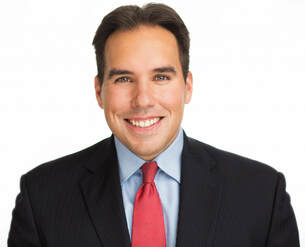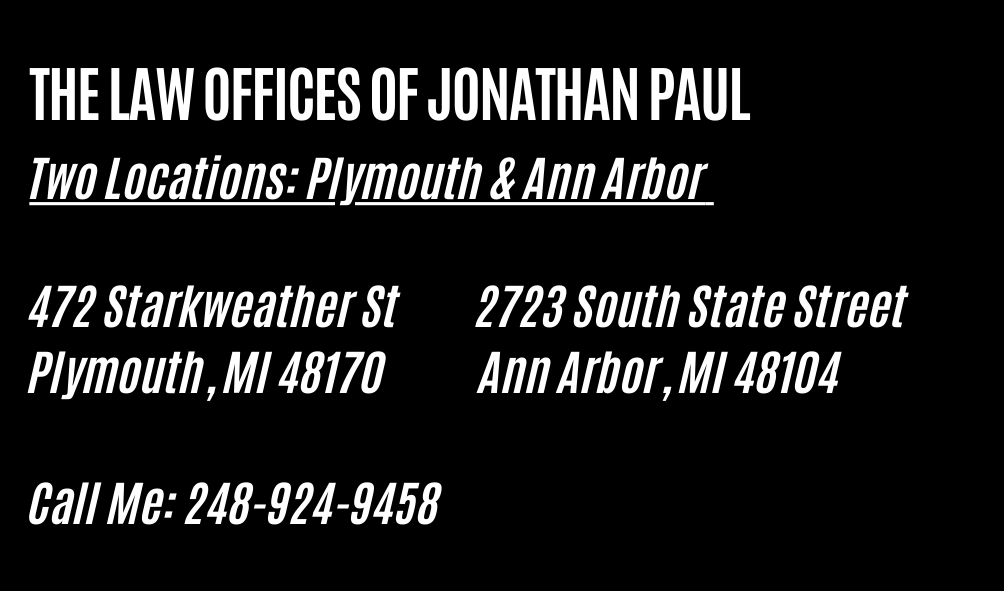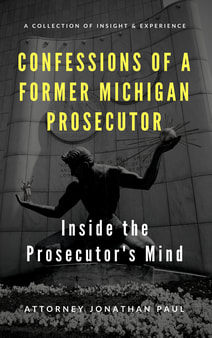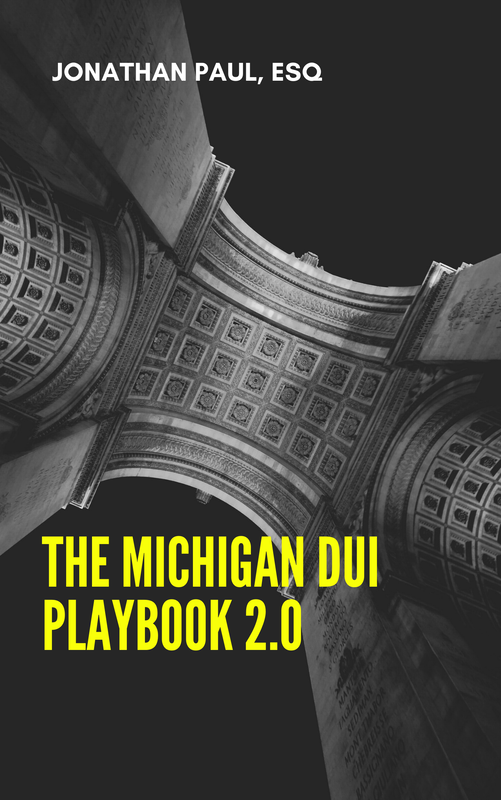Michigan DUI Trial - Bench or Jury Trial - What is the best option for a drunk driving case?2/23/2016
If you're charged with drunk driving in Michigan, you may decide to proceed to trial. Going to trial means making the decision of whether you want a trial by jury or a trial by judge. If you select a trial by jury, you will have 6 jury members for a misdemeanor, and 12 members for a felony.
There are several things to consider when deciding whether to try a case to a judge or a jury. The single most important factor is the judge who would hear the bench trial. Judges have reputations and a history on drunk driving cases, and this will be extremely important. There are some judges in Michigan where no matter what, you're probably not going to do a bench trial in front of, but there are some judges who are very good fits for a bench trial. Judges in general see a lot of DUI cases each year, and have pretty good knowledge about these types of cases versus any other type of cases. The judge will compare your case to other cases he has heard, and will be able to really narrow down the facts, and if you're intend guilty beyond a reasonable doubt - in short, there's no fooling a judge with certain common defenses presented to juries. Sometimes very technical defenses are better for a well-educated judge who is familiar with the science. The other factor in making this decision is the city, township etc where the case will be heard. There are certain communities that are better to try jury cases with than others. The facts of your case will also be a major factor in this decision. A judge may be more zero tolerance, viewing say a 0.08 and 0.16 to be the same thing whereas a jury may cut you a break if you're right at that legal limit. Many members of the jury will reflect back on their time behind a wheel, and admit to themselves they may have been in a similar position. A high BAC number may really turn off a jury whereas a judge may understand a technical defense that explains away this seemingly high alcohol level. If you're charged with drunk driving in Michigan, you may decide to proceed to trial. Going to trial means making the decision of whether you want a trial by jury or a trial by judge. If you select a trial by jury, you will have 6 jury members for a misdemeanor, and 12 members for a felony.
From there the prosecution and your attorney will give opening statements, witnesses will be called from both sides, with the opposing attorney having the opportunity for cross-examination. Once all the evidence is presented, both attorneys will have a chance to give a closing argument. The closing argument will be the last time your attorney gets to address the jury. An effective closing argument reminds the jury of what was discussed in opening statements, and uses the jury instructions as a guide to arguing for an acquittal. Depending on the facts in your case, an experienced Michigan DUI lawyer may include the following arguments in his/her closing argument: -Defendant was not "operating" the vehicle, which is an essential element of the crime of drunk driving in Michigan. This could mean the defendant was behind the wheel, but not legally operating, or was actually never behind the wheel as a potential driver. - Defendant is innocent of drunk driving, and the evidence of intoxication was actually due to a medical condition or physical disability. The defendant is certainly entitled to an acquittal. - Prosecution did not meet burden beyond a reasonable doubt on all necessary elements. In this scenario, the defendant may have broken the law, but the prosecution cannot meet their burden, and under the law, the defendant is entitled to an acquittal. - Arresting officer was lying, mistaken or was not credible, and this entitles the defendant to a not guilty verdict. - DataMaster operator or blood lab technician was lying or erred about the test result, and the jury should find the defendant not guilty. - DataMaster was not working properly and the results are not reliable, which means the defendant is not guilty beyond a reasonable doubt. -The chemical test results don't make sense in light of the other evidence; there is some doubt as to their reliability. - Defendant's constitutional rights were violated by the police department, the police department had a bias against the defendant or evidence was destroyed or lost, and the defendant is entitled to a not guilty verdict. If you're charged with drunk driving in Michigan, you may decide to proceed to trial. The most effective way of winning your DUI trial in Michigan is through cross-examination of the prosecutor's witnesses.
Michigan drunk driving cases start with a police officer believing the Defendant to be the driver of a motor vehicle. If the officer observes the Defendant driving the vehicle then it may be difficult to challenge this observation unless you can prove the officer is either lying or mistaken. If the police officer does not actually observe the Defendant driving, such as an accident case or an idle vehicle on the side of the road or parking lot, it's possible to aggressively attack this element to the crime. In cross-examination, a defense attorney uses leading questions, which require yes or no responses. The goal here is to show that the officer actually does not know whether the charged Defendant was driving the vehicle. Let's call the driver Mr. Damon, and Mr. Damon is standing outside of the car when the police arrive. Here is a mock cross-examination on the issue of operation. - Officer did Mr. Damon tell you he was driving the vehicle? NO - You didn't see Mr. Damon driving the vehicle? NO - You didn't see Mr. Damon in the car at all? NO - You didn't see him behind the wheel? NO - You didn't see him with the keys in the ignition? NO - In fact there are no eyewitnesses, including yourself that say Mr. Damon was driving? Correct - So all you can tell the court is that you saw my client Mr. Damon standing outside of a car? Right - So when you arrested my client for drunk driving, you were just assuming he was the driver? Right - But you actually don't know for sure? Well he was the only person there, and he was standing next to the vehicle - The question was, you're assuming he was the driver, you don't know he was? Right - So it's possible Mr Damon was not driving that vehicle? It's possible Here the police officer cannot say for sure whether Mr. Damon was the driver, and that creates a reasonable doubt to one of the elements to the crime. If Mr. Damon doesn't admit to driving, it's not a slam dunk for the prosecution to prove this element. Most drivers will actually admit to driving, which makes the prosecutor's job a lot easier to prove operation. If the prosecution cannot prove beyond a reasonable doubt that you were operating the vehicle, then you are entitled to an acquittal. Once the issue of operation has been explored, the prosecution is going to have the officer testify to his/her observations of you, such as smell of alcohol, red/watery eyes, slurred speech, couldn't follow instructions and field sobriety tests. The prosecution and police officer would have the jury believe that combined these observations equate to the defendant being intoxicated and guilty of a crime. The key to approaching this testimony is to break each observation into its own line of questioning. Your attorney will go through each observation, and gain concessions from the police officer to common sense explanations. One easy to understand example is the issue of red eyes; surely the very same officer has experienced red eyes in a non-intoxicated state at some point in their life. This explanation is especially effective if the observation took place late at night or early in the morning. If the officer refuses to acknowledge the alternative explanations, he/she will lose credibility with the jury. Each one of these observations has an alternative explanation, but are usually not mentioned or considered, because the job of police officer is to collect evidence of a crime. This doesn't make the officer a liar, or even an unfair person, he/she is simply doing her job as part of the government system. The very same line of questioning can be used to challenge probable cause to arrest, which if successful could lead to an outright dismissal of your case. It's very common, almost a guarantee that you will be asked to take a series of field sobriety tests, and be marked as failing each and every test. An experienced Michigan DUI attorney will cross-examine the officer by pointing out the conditions which the tests were given, the inherent difficultly of the tests, and the subjective nature of the tests. The conditions at the scene are usually at night, in the dark, and on the side of a road in unfamiliar conditions. In addition to the less than ideal conditions, the subject of these tests is under a lot of stress and frightened. If an accident is involved, the subject mat be injured and not physically able to do well on the tests. The odds are stacked against the defendant, and the jury needs to know about it. Here is a brief sample of an effective cross-examination of the arresting officer who only administered one field sobriety test before concluding the driver was intoxicated: - Officer, you stated on direct examination that you had my client perform a field sobriety test, which involved my client touching his nose with his right hand, then his left hand - Yes that's correct - And this is the only field sobriety tests you had him perform? - Yes only one Your attorney would then go through the different field sobriety tests that were not performed one by one, and the officer would acknowledge that he failed to give any other tests. This line of questioning can then be argued in closing argument that the officer rushed to judgment, and once he had a failing result stopped all tests to keep a strong case against the defendant, which was certainly unfair. If you've been arrested for drunk driving in Michigan, and subjected yourself to a breath test via DataMaster, your Michigan DUI attorney will then thoroughly cross-examine the prosecution's DataMaster operator. Most DataMaster operators in Michigan have very limited training and information to offer about the machine used to obtain a breath sample. The operator is simply trained to use the machine to get a result, not necessarily understand it. The operator will have to acknowledge the very limited initial training and lack of follow-up training. This lack of extensive training provides fruitful grounds for cross-examination. Besides a general lack of training and knowledge by the officer, your attorney will be able to explore specific lack of knowledge by the officer. There are a number of lines of questioning that can shed light on the possibility that the tests were not accurate, and without enough knowledge to respond to these possibilities, the jury may have no choice, but to find these tests are not accurate beyond a reasonable doubt. A fruitful area of cross-examination is the operators lack of knowledge if the machine is working properly. The operator will surely say the machine was built to inform the operator if it is not working, but most operators have not checked whether this safeguard actually works; if the test itself can have an error, so can the mechanism that identifies errors. DataMaster operators are not trained to identify errors, which leaves a major hole in their testimony. This is like someone knocking on your front door and telling you there is a fire in your home, but you respond with "no there's not, my smoke alarm would have told me about a fire". Another fruitful line of questioning are the calibration records contained in a log book; the DataMaster is inspected and calibrated about every two weeks, but the operator is not trained to calibrate or inspect the machine when offering a test so there is no way to know if the machine is working properly during the days in-between. There is reasonable doubt that the machine was working properly between calibrations, and the operator cannot firmly counteract that possibility. Creating reasonable doubt as the accuracy of the results can be very effective in a case where the test results are close to the legal limit of 0.08 for an Operating While Intoxicated charge, or the legal limit of 0.17 for a Michigan High BAC charge. The prosecution may have civilian witnesses testify against you. These witnesses might be other drivers, pedestrians or employees of bars and restaurants. The common theme with these witnesses is typically inexperience in testifying. Civilian witnesses typically testify to offer prove that the defendant was driving, usually in an accident case. The typical civilian witness is subpoenaed to court, carefully prepared by the prosecution, and feels a civic duty to "help" the prosecution prove their case. This witness might testify about driving, observations of possible intoxication and any statements made by the defendant. If this witness is injured or property is damaged then they will testify about injuries or the damage suffered from the incident. As the defendant in the case, you will have the best information about this civilian witness; you may also have information about pending lawsuits, and based on your prior interactions, the general demeanor of this witness toward your case. If you're charged with drunk driving in Michigan, you may decide to proceed to trial. If you decide to have a trial by jury, the first part of the trial will be jury selection.
Once jury selection is over, the prosecution will make their opening statement, which will generally summarize the date and location when the Defendant was operating a vehicle. From there the prosecution will tell the jury how the police made contact with the Defendant, how they knew the Defendant was driving, and what if anything did the Defendant say to the police. Now the prosecution will talk about any field sobriety tests conducted and ultimately the arrest of the Defendant; once arrested the prosecution will tell the jury about either the DataMaster or blood test result. Once the prosecution sits down, your attorney will make their opening statement, which will present your theory of the case, problems with the prosecution's case and reminders about the burden of proof. It is important to make a great first impression with the jury, and gain their trust as their leader in examining the evidence. The most effective method for making an opening statement is through the power of storytelling. Your attorney should fully explore the entire arrest experience from beginning to end to fully understand your story. Opening statement is an excellent time for your attorney to frame the issue and simplify the case for the jury. This is not the time to get defensive about the evidence, but rather put forth a pro-active and optimistic view of the evidence. One of the most important roles during opening statement is to clearly define the burden of proof, not as "did the accused commit the crime, or not commit the crime", but rather "did the accused commit the crime beyond a reasonable doubt". Criminal trials are not 50/50; there are not two equal options, which the jury must be convinced, but rather only one option (beyond a reasonable doubt), which is either met or not met. There are circumstances where your attorney may decide to reserve opening statement until the prosecution has rested their case; this is a rare situation, but could be highly effective. If you're charged with drunk driving in Michigan, you may decide to proceed to trial. Going to trial means making the decision of whether you want a trial by jury or a trial by judge. If you select a trial by jury, you will have 6 jury members for a misdemeanor, and 12 members for a felony. There are a number of important topics that must be addressed during jury selection. Here are some of the most common:
Alcohol Use: Alcohol use is at the very heart of a Michigan DUI trial. If a potential juror has strong or negative feelings toward alcohol, this is not a fair and impartial juror. As long as the accused is over 21, it is not illegal to consume alcohol, even consuming alcohol to a certain extent then driving. If a juror is predisposed against alcohol use, the alleged drunk driver is fighting against alcohol use rather than the charged crime. The fact that a potential juror does not consume alcohol does not make that juror a bad juror; many people don't drink alcohol for various reasons, but hold no negative feelings toward the consumption. An experienced Michigan DUI attorney will be able to explore the issue during the jury selection process. Another line of questioning could be whether potential jurors have consumed alcohol then driven a car after consuming the alcohol. It's important to remind jurors that this was not against the law, and the alleged defendant is not on trial for drinking then driving, but rather a specific charge that requires more than simple alcohol consumption. An opened minded juror with many life experiences including experience with alcohol makes for an excellent potential juror. Chemical Test Results Unless a defendant is able to successfully challenge operation, a defendant will most likely be convicted if the jury accepts chemical test results as accurate. Most jurors if polled prior to trial would probably say that if the police conducted a test on someone accused of a crime that the test is most likely accurate. This is the assumption that a juror will take into the courtroom, and will only be reinforced by the prosecution who will call witnesses to the stand to support this assumption. The problem here is that the prosecution cannot convict someone of a crime based upon assumptions; these assumptions are based upon myths. An experienced Michigan DUI attorney needs to rid the jury of this assumption during the jury selection process; it is a very dangerous assumption if adopted. Along with getting rid of this assumption, your attorney must gain commitment from each potential juror that they will actively question the results of the chemical tests. A person accused of a crime is entitled to the presumption of innocence; all chemical evidence must be viewed with the presumption of innocence glasses, not the other way around. An excellent way of achieving this goal is frame the issue for the potential jurors. Frame the issue around "is the test reliable and accurate beyond a reasonable doubt", and remind the jury that just because test results are admitted, says nothing to their accuracy. It is the job of the jury to decide whether the results are accurate, not the judge, not the attorneys, not the police officers or experts on the stand. Defendant Testifying When planning a trial strategy, you will speak to your attorney about the possibility of testifying. The decision whether to testify may still be up in the air when the trial starts, but regardless of what happens, an experienced attorney will ask jurors about the topic during the jury selection process. The reason why this is essential in every case is that a potential juror has a pre-conceived notion that if someone was charged with a crime, they would surely testify in their defense. It's important to speak to the jury about why this is not always the case. A good way to broach the topic is comparing the defendant to the jury pool. Members of the jury like the defendant are usually not trained in public speaking, and certainly not trained to be cross-examined by a skilled attorney in open court. By presenting a series of alternative reasons why the defendant may not testify, it eliminates preconceived notions if the attorney chooses not to have the client testify. If the client does testify, it may actually make a stronger statement to the jury than if the subject was not mentioned. |
Click to Email Me Categories
All
|
Ann Arbor Office LocationPlymouth Office Location |
Representing DUI Clients in MichiganRepresenting clients charged with a DUI in Ann Arbor, Canton, Brighton, Howell, Saline, Adrian, Taylor, Plymouth, Northville, Westland, Ypsilanti, Pittsfield Towsnhip, Warren, Sterling Heights, Farmington, Pontiac, Romulus, Lansing, Novi, South Lyon, Southfield, Birmingham, Bloomfield Hills, Royal Oak, Troy, Rochester, Jackson, East Lansing, Garden City, Livonia, Dearborn, Detroit, St Clair Shores, Hazel Park, Ferndale, Madison Heights, Waterford, Milford, Shelby Township Clarkston, Oak Park, Berkley, Fraser, Sterling Heights, Clinton Township and others throughout Washtenaw, Wayne, Monroe, Jackson, Genesee, Macomb, Ingham, Lenawee, Livingston and Oakland County.
|








